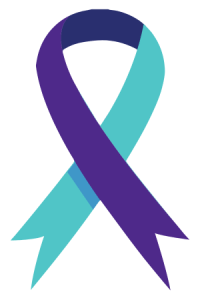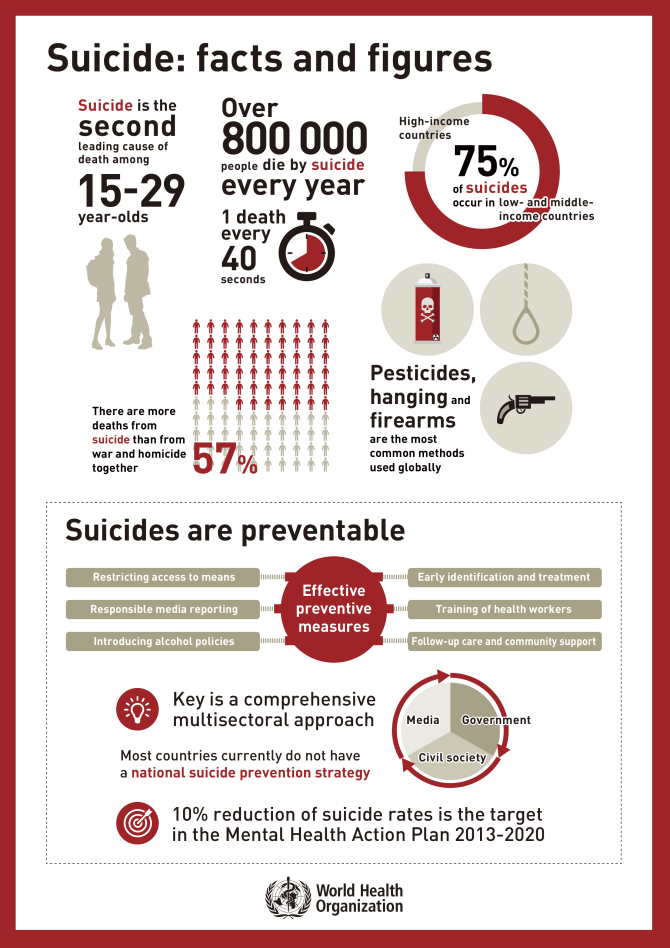 Please note: the 988 Suicide and Crisis Lifeline is available 24/7 if you or someone you know is struggling or in crisis. Call or text 988, or chat at 988lifeline.org.
Please note: the 988 Suicide and Crisis Lifeline is available 24/7 if you or someone you know is struggling or in crisis. Call or text 988, or chat at 988lifeline.org.
September is Suicide Prevention Awareness Month, a time that is intended to shift public perceptions of suicide to raise awareness of this “taboo” topic. It’s okay to talk about suicide, and, in fact, reducing the stigma and opening up about mental health could save lives.
It can be easy to assume that suicide is something that will never impact our lives, but suicide and suicidal thoughts can have an impact on yourself, your loved ones, and your community.
NAMI, the National Alliance on Mental Illness, provides these facts:
Individual Impact
- 79% of all people who die by suicide are male.
- Although more women than men attempt suicide, men are four times more likely to die by suicide.
- Suicide is the second leading cause of death among people aged 10-14 and the third leading cause of death among people aged 15-24 in the U.S.
- Suicide is the 12th leading cause of death overall in the U.S.
- Though 54% of people who die by suicide did not have a diagnosed mental health condition—research shows that 90% may have experienced symptoms of a mental health condition.
Community Impact
- Annual prevalence of serious thoughts of suicide, by U.S. demographic group:
- The highest rates of suicide in the U.S. are among American Indian/Alaska Natives followed by non-Hispanic whites.
- Lesbian, gay and bisexual youth are nearly four times more likely to attempt suicide than straight youth.
- Transgender adults are nearly nine times more likely to attempt suicide than the general population.
- Suicide is the leading cause of death for people held in local jails.
Data from CDC, NIMH and other select sources.
NAMI, the National Alliance on Mental Illness, provides many resources for navigating suicide and thoughts of suicide, both for yourself or for loved ones. For example, they note things to look out for, such as thoughts or comments that someone wishes they weren’t there or that nothing matters, withdrawal from friends, or giving away possessions.
You Are Not Alone, NAMI’s guide to navigating mental health, is available at any time with your Canton Public Library card through hoopla.
For more information regarding the work that NAMI is doing here in southeast Michigan, check out our blog regarding NAMI Metro.



Add a comment to: National Suicide Prevention Awareness Month